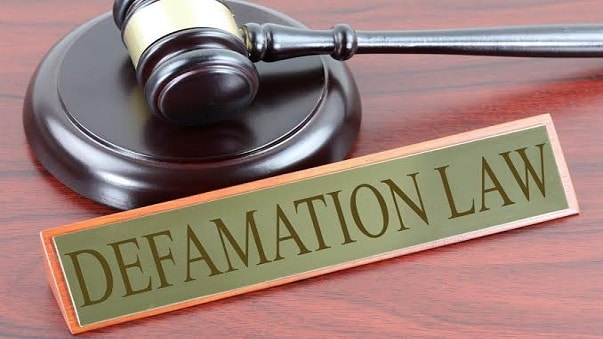Every individual Indian is entitled to live with dignity and respect. Any person defaming any other person may be held responsible for Civil and Criminal Liabilities. No-body in the society has the right to down you or to disrespect you. If such a thing happens then your lawyer for Defamation case will help you get justice and appropriate compensation. Defamation litigation is an area of law where lawyers take cases to court over false statements made against someone. Learn about defamation lawsuits and how they affect you!
Defamation is defined under section 499 of IPC. And it is clarified that it not only directly but also indirectly or even in innuendo anyone cannot be disrespected in the society. The sections 499 to 502 of Indian Penal Code deal with Defamation. Defamation is when someone makes a false statement that damages another person’s reputation.
In India, defamation is a criminal offense and is governed by the Indian Penal Code (IPC). It involves the publication of false statements that harm the reputation of an individual or entity. Defamation can be committed through various means, including written or spoken words, gestures, or visible representations.
Under Indian law, both libel (defamation in written form) and slander (defamation in spoken form) are punishable offenses. The punishment for defamation may vary from simple imprisonment to imprisonment with fine. In some cases, a person may also be required to pay compensation to the person or entity whose reputation has been harmed.
It is important to note that truth is a defense against defamation. If the statement in question can be proven to be true, it will not be considered defamatory. However, truth may not always be a defense if it was made with malicious intent.
In recent times, there has been an increasing trend of misuse of defamation laws in India, with politicians and public figures using the laws to suppress free speech and silence criticism.
In India, defamation can also be pursued under civil law in addition to criminal law. Under civil law, the victim of defamation can file a lawsuit seeking compensation for damages suffered as a result of the defamatory statement.
In a civil defamation case, the burden of proof is on the plaintiff to prove that the defamatory statement was made, that it referred to the plaintiff, and that it caused harm to the plaintiff’s reputation. If the court finds in favor of the plaintiff, it may award damages, which can include monetary compensation, as well as an injunction to prevent further publication of the defamatory statement.
Civil defamation cases can be lengthy and expensive, and therefore, many victims of defamation prefer to seek redress through criminal law. However, civil lawsuits provide an additional avenue for victims of defamation to seek compensation and redress for harm suffered.
It is important to note that freedom of speech and expression is protected under the Constitution of India, and that courts have held that the right to freedom of speech and expression can only be restricted in certain circumstances, such as in the interests of public order, decency, and morality. Thus, it is advisable to seek legal counsel before making any statement that may be considered defamatory.
Defamation can of Two Type it can either be LIBEL and SLANDER. Libel deals with the permanent form of defamation means defamatory statement should be written, published or engraved. Slander deals with the defamatory word either spoken or any defamatory sign, gesture etc.
Person who has disrespect you or tarnished your image can be held responsible for Civil Liabilities and Criminal Liabilities. For civil liabilities accused/defendant has to compensate for your damages which you have claimed and you have proved it to be justified. And in Criminal Liability accused Person can also be punished under section 500 of IPC and such complaint has to be made before the concern magistrate and Magistrate may try and punish the person accordingly.
Choosing the best advocate for a defamation case in India depends on several factors, such as the complexity of the case, the jurisdiction in which the case will be heard, and the individual’s personal preferences and budget.
When choosing an advocate for a defamation case, it is important to consider the following:
- Experience: Look for an advocate who has extensive experience in handling defamation cases and is familiar with the relevant laws and procedures.
- Reputation: Choose an advocate who has a good reputation in the legal community and is known for his/her expertise in the field of defamation law.
- Communication Skills: Look for an advocate who is an effective communicator and can explain complex legal concepts in simple terms.
- Availability: Ensure that the advocate you choose is readily available to attend court hearings and provide timely updates on the progress of your case.
- Budget: Consider your budget when choosing an advocate and look for one who is willing to work within your budget constraints.
It is advisable to get recommendations from trusted friends, family members, or colleagues, or to seek the assistance of a legal referral service. You may also wish to meet with several advocates before making a decision, in order to find one who you feel comfortable working with and who you believe will represent your interests effectively.
Here are some frequently asked questions about defamation in India:
- What is defamation in India?
Defamation in India is the act of making a false or defamatory statement that harms the reputation of an individual or entity. Defamation can be both civil and criminal in nature.
- What is the difference between civil and criminal defamation in India?
Civil defamation is a non-criminal legal action that can be filed by an individual or entity against the person who has made the defamatory statement. The purpose of civil defamation is to seek monetary damages for the harm caused to the reputation of the plaintiff.
Criminal defamation, on the other hand, is a criminal offense under the Indian Penal Code. It is a more serious offense than civil defamation and can lead to imprisonment and/or fines.
- What are the remedies for defamation in India?
The remedies for defamation in India include:
- Filing a civil suit for damages against the person who made the defamatory statement
- Filing a criminal complaint under Section 499 and 500 of the Indian Penal Code
- Seeking an injunction to restrain the person from making any further defamatory statements
- What are the elements of defamation in India?
The elements of defamation in India are as follows:
- The statement must be false
- The statement must be made to a third party
- The statement must be intended to harm the reputation of the plaintiff
- The statement must actually harm the reputation of the plaintiff
- Can a statement of opinion be defamatory in India?
Yes, a statement of opinion can be defamatory in India if it is made with malice and causes harm to the reputation of the plaintiff.
- Can a company sue for defamation in India?
Yes, a company can sue for defamation in India if the defamatory statement harms its reputation. In such cases, the company would need to prove that the statement was made with the intention to harm the reputation of the company.
If you have been the victim of defamation or have been accused of making defamatory statements, it is important to seek the advice of a qualified legal professional to protect your rights and interests.
As far as Jurisdiction of Defamation is concerned, it can be filed at any such place where such defamatory statement is heard, read or seen.
We at Century Law Firm deal with both civil and criminal defamation cases. We have the team of Best Lawyer(s) for Defamation Case in Delhi NCR.



